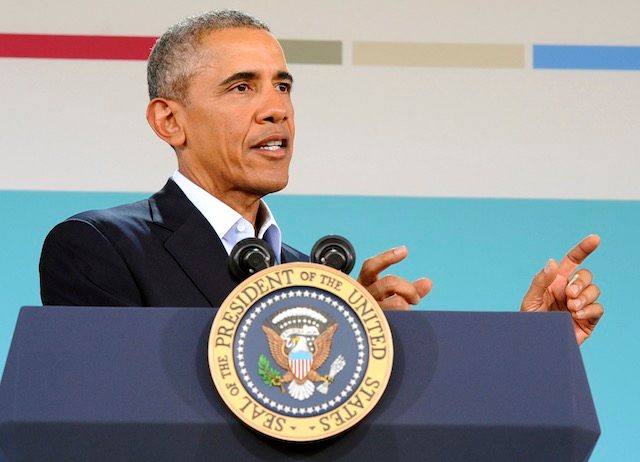SUMMARY
This is AI generated summarization, which may have errors. For context, always refer to the full article.

WASHINGTON DC, USA (UPDATED) – US President Barack Obama will make a historic visit to Cuba “in coming weeks,” a US official said Wednesday, February 17, a powerful sign of the thaw in relations between the former Cold War foes.
“We can confirm that tomorrow the administration will announce the president’s travel to Latin America, including Cuba, in the coming weeks,” the official, who asked not to be named, told Agence France-Presse.
It would be the first visit to Cuba by a sitting US president since Cuba’s 1959 revolution. The last American leader to visit the island was Calvin Coolidge in 1928.
The two Cold War foes restored diplomatic relations in July after a historic rapprochement between Obama and Cuban President Raul Castro the previous December.
Since then, the new openings have been small and incremental as the more than half-century-old US trade embargo on the island remains in place, with little prospect of repeal under a Republican-controlled Congress.
The Obama administration has instead focused on regulatory changes to ease travel and trade between the two countries, which have close family ties. There are 1.8 million Cuban Americans and Cuba has a population of 11 million.
On Tuesday, the US and Cuba signed an agreement authorizing daily US commercial flights to the island for the first time in more than 50 years.
Half century of sanctions
US sanctions were imposed after Fidel Castro came to power in 1959, moved toward revolutionary rule and then joined the Soviet bloc for decades.
Trade delegations have been flocking to Cuba lately, interested in how to engage its highly trained work force, and natural assets such as its sun-drenched Caribbean beaches, a huge draw for tourists.
Cash-strapped Cuba in turn needs to tap new sources of income as its main ally and financial backer, Venezuela, is mired in economic and political crisis, with oil prices still low.
Most of the Cubans economy is state-run, Soviet-style; average wages are $20 a month and Havana frets about any opening undoing its social progress since 1959.
Raul Castro took over the leadership from his brother Fidel in 2006 and was formally made president in 2008. The Castros are traditional allies of fellow Latin American rebel movements that date back to the 1960s, such as the Colombia’s FARC.
‘I wouldn’t go’
Republican presidential hopeful Marco Rubio, a son of Cuban immigrants, told CNN he would not travel to Cuba “if it’s not a free Cuba.”
“They are a repressive regime. There’s no elections in Cuba. There is no choice in Cuba,” argued Rubio, who grew up in Las Vegas and Florida.
“I want the relationship between the US and Cuba to change but it has to be reciprocal. Look what we did with Burma or Myanmar, where the US opened up to them, but they made political changes,” Rubio stressed.
Rubio maintained that “a year and two months after the (US diplomatic) opening (to) Cuba, the Cuban government remains as oppressive as ever.” – Rappler.com
Add a comment
How does this make you feel?
There are no comments yet. Add your comment to start the conversation.